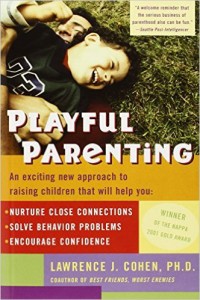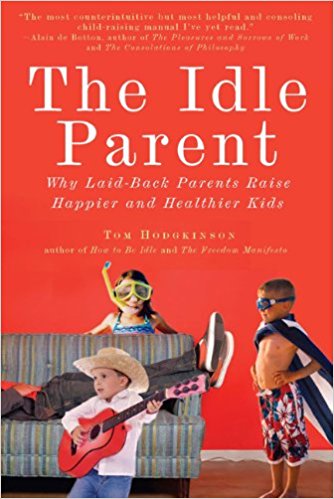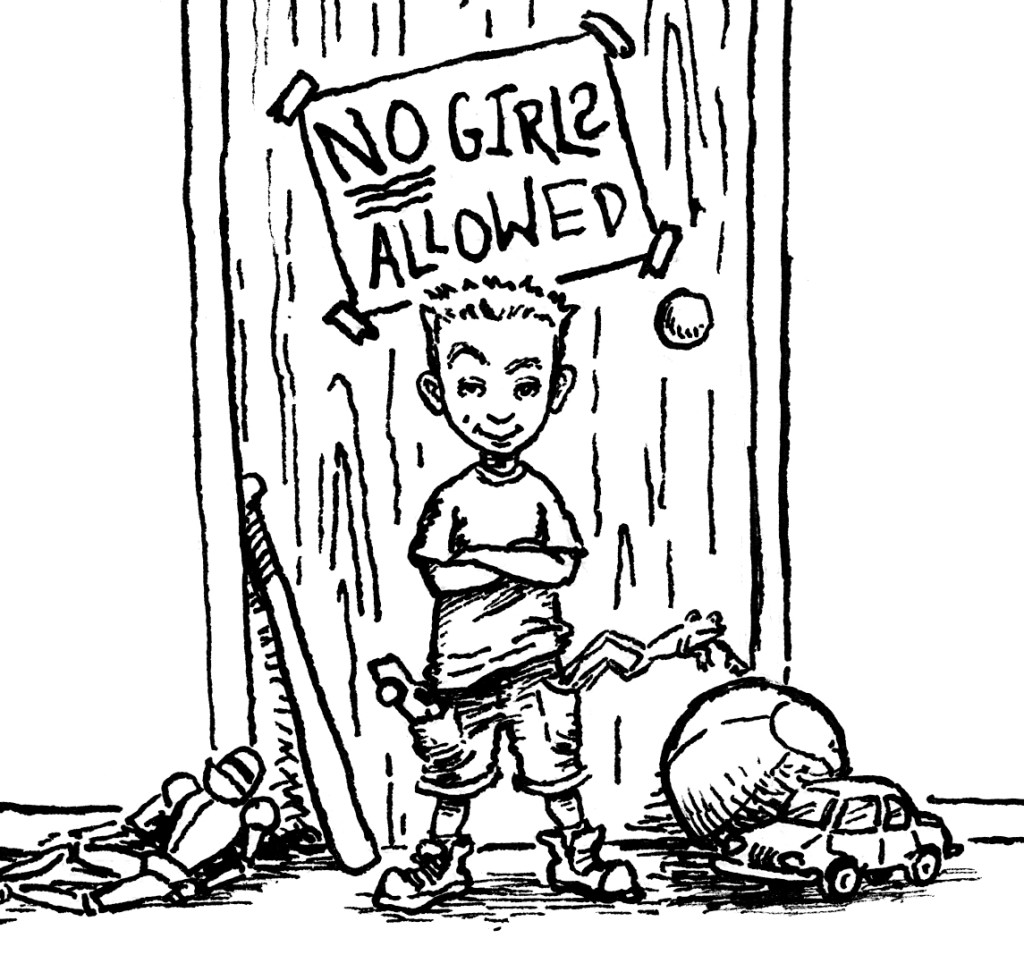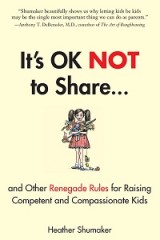A World of Books and Children
Search and enjoy 8 years of posts chock-filled with ideas from It’s OK Not to Share and beyond.

Can the Grand Canyon compete with the social media habit? It's trying.
This summer we camped out west and visited National Parks. The Grand Canyon was - Wow. But then I turned my head and encountered a different type of wow - the sight of people not looking at the view. No, not focusing on the view of the Grand Canyon at all, although they stood five feet from it. They were hunched in a private world scrolling through Facebook.
Let me add, these weren't kids. Or even teenagers. These were adults. Middle-aged, older-aged. One daughter even called her dad out on it. "Really, Dad? Even here? Can't you give it a break?"
When we think of technology and kids, we need to focus first on ourselves. Examine how we use and model technology and whether (or not) we are creating a healthy balance in life. The kids are watching. Some are modeling their sense of etiquette and normal behavior after us. Most are longing for more real-world contact, yes, even with their parents.
Need some technology balance? Go to my book It's OK to Go Up the Slide, which includes parenting in the digital age. Chapters focus on both kid and adult use of technology.
 Or inject some more playful parenting into your life. The next book for the Book-Lover's Summer Giveaway is Lawrence Cohen's Playful Parenting. If you don't know Larry's work, he's a compassionate and wise voice who understands both emotions and wrestling.
Or inject some more playful parenting into your life. The next book for the Book-Lover's Summer Giveaway is Lawrence Cohen's Playful Parenting. If you don't know Larry's work, he's a compassionate and wise voice who understands both emotions and wrestling.
If you'd like to win the book, write a quick book review. Here's how:
1) Show your love for books by posting a book review (1-2 sentences) on Amazon and or/Goodreads. You can review any book - It's OK to Go Up the Slide, Saving Arcadia, or any book you like that's ever been published. Honest reviews only - that's what readers want.
2) Leave a comment on this blog or my Facebook page, Heather Shumaker Writer saying which book you chose to review and where you reviewed it. That's it! You're entered to win. (Winners drawn with a random number generator; U.S. mailing addresses only).
Winner will be drawn July 18.
Enjoy the Book-Lover's Summer Giveaway! Hope everyone had a happy 4th of July. Our local parade was terrific - except for that one woman who was marching in the parade while scrolling on her phone...
What about you? What zany places have you seen over-the-top technology use? Where would you like to banish it? Share your tech stories or your book review comments.

Get ready to win and review books! Book-Lover's Summer Giveaway.
Summer is here! It starts today for my kids. Time to forget adult schedules, follow dreams and be themselves. And for all of us grown-ups, time for some great summer reading.
This summer I'm doing a Book-Lover's Summer Giveaway. Throughout the summer (when I'm not out camping away from all things technology), I'll be giving away thought-provoking parenting books.
If the title interests you, show your love for books and leave a comment. Here's how:
1) Show your love for books by posting a book review on Amazon and/or Goodreads. You can review any book - It's OK to Go Up the Slide, Saving Arcadia, or any book you like that's ever been published. Honest reviews only - that's what readers want.
2) Leave a comment on this blog or my Facebook page, Heather Shumaker Writer saying which book you chose to review. That's it! You're entered to win. (Winners drawn with a random number generator; U.S. mailing addresses only).
First winner will be drawn on July 4th.
First book is The Idle Parent. It seems a great book to start out the summer. This is an anti-helicopter, anti-entertain-the-kids book which could get you off on the right foot for summer. A sampling of chapter titles: The Myth of Toys, End all Activities, Down with School, Let us Sleep, Say "Yes."
Here's a quote from the opening that sets the tone:
"How to begin to educate a child. First rule, leave him alone. Second rule, leave him alone. Third rule, leave him alone." - D.H. Lawrence, "Education of the People," 1918
So get ready for a summer of fun reading, exploring new parenting ideas, and letting the kids alone. Remember, they've got their own ideas to pursue.
July 4: Congratulations to the winner of this book giveway. Watch for new ones coming this summer!
Are you ready for some summer reading? Don't worry, you can always win the book now, then curl up in a cozy fall or winter armchair.

We want kids to all be friends. But life is more complex than that.
Allowing kids to reject each other can build inclusiveness. What?! No, this isn't George Orwell's 1984, where every truth is backwards. It's simply another renegade rule that takes some getting used to.
When I explain why respectful rejection is good for kids, I often get strong adult reactions. We're terrified. We don't want kids to be mean and reject each other. We want to teach them kindness. Most of all, we want them all to be friends. Those are noble goals, but just like sharing, when we try to force friendship, things backfire. Real-life kindness and tolerance need a different set of social skills.
Respectful rejection actually helps kids gain the skills and confidence they need to bring more people in. It's a tool for tolerance, not intolerance.
When children are allowed to choose their playmates and say no to others (see chapters like "You Can't Play = A-OK" in my book It's OK Not to Share), they develop the skills and experience to be welcoming friends. It doesn't come all at once. Feeling comfortable with others and knowing how to set limits in social situations is all part of it. Forays into friendship can take courage.
Why Children Reject
Developmental - For young children, it's true three can be a crowd. Very young children are still emerging from parallel play. Maybe it's true they can't handle one more person in their game. It's too overwhelming. This is a developmental reason.
Protecting a Friendship - This reason is often overlooked by well-meaning adults. Kids who say 'no' to another child may be trying to concentrate on a friendship. They're fully involved with an existing friend in play. It's rather like when you're having coffee with a friend and your husband/ wife/ partner shows up. It's not that you don't like him, but it changes the dynamic. Hopefully we're adult enough to handle this situation, and no one goes away with hard feelings. That should be our goal with the kids, too. "Looks like you're busy playing with Ruby right now." We can guide kids to be respectful when they reject and help all children develop resilience and coping skills. It's not that kids don't like the other person, it's just that they want to be with another friend right now. No big deal. If we don't make it a big deal, we can help kids cope with temporary disappointment.
Fear-based Rejection - This is a big one. Kids say 'no' if they're worried about another child. Maybe she hits. Maybe he's bossy. Maybe a week ago she scribbled on a favorite painting. There are all sorts of legitimate and fanciful fears that motivate kids to protect themselves and say 'no.' It's safer. If we're not focused on the adult-imposed doctrine of "we don't say you can't play," then we can help guide kids to saying 'yes' more often. Ask simple questions or make statements. "What will happen if Olivia joins your game?" "I wonder what you're worried about." "What will Tayson do that you don't like?" Being direct like this helps uncover the fears. Then it's a simple matter of helping kids set limits to feel safe. "Olivia, Chris is worried that you'll knock her tower down. Are you going to knock it down? Oh, Olivia says she won't touch your tower. Can she play with you if she doesn't hit your tower?" Find the fear. Set a limit. Watch a friendship grow.
Children who feel safe - to enjoy a special friendship on their own, or to set a limit on another child - are MORE likely to be welcoming and inclusive. That's because their rights are respected. The right to pursue a friendship without interruption, the right to speak up, the right to express fear and set peer-to-peer boundaries. It's about feeling safe and gaining courage through experience.
When we feel safe and confident ourselves, we're more likely to be welcoming to others.
If you try respectful rejection with kids - rather than forced friendships - you'll see kids who:
- Get on well with others
- Know how to make friends
- Know how to be a good friend
- Are kind to people around them
- Know how to set personal boundaries
- Are willing to give other people a chance
- Are open and welcoming to new types of people
The ultimate goal of respectful rejection is inclusiveness. Just as the ultimate goal of "it's OK not to share" is generosity. We all need practice and understanding to get there.
 Curious to read more on the dicey subject of rejection? Get a copy of It's OK Not to Share.
Curious to read more on the dicey subject of rejection? Get a copy of It's OK Not to Share.
What's your take on this misunderstood subject? Are you willing to try respectful rejection? Do you remember forced friendship situations from your own childhood?
